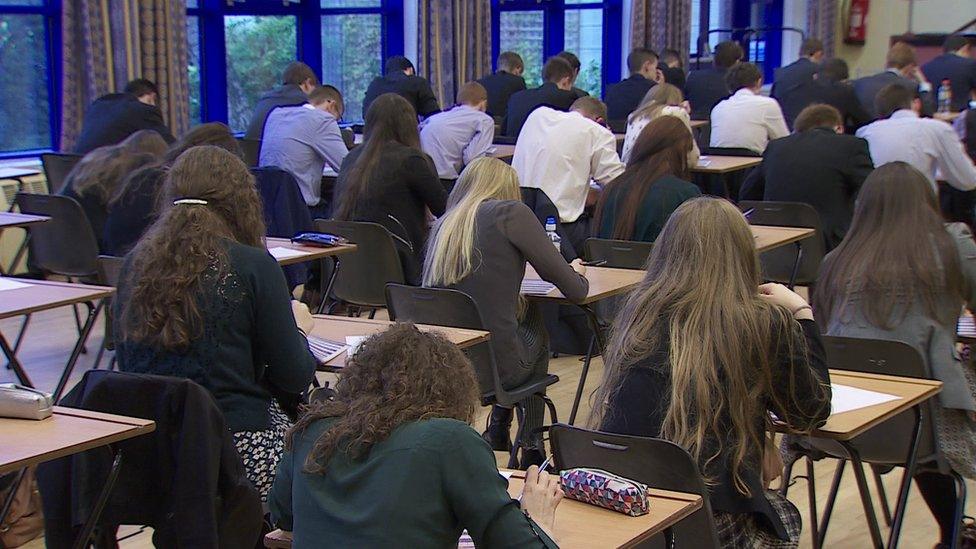Northern Ireland primary pupils highest achieving in Europe in maths tests
- Published
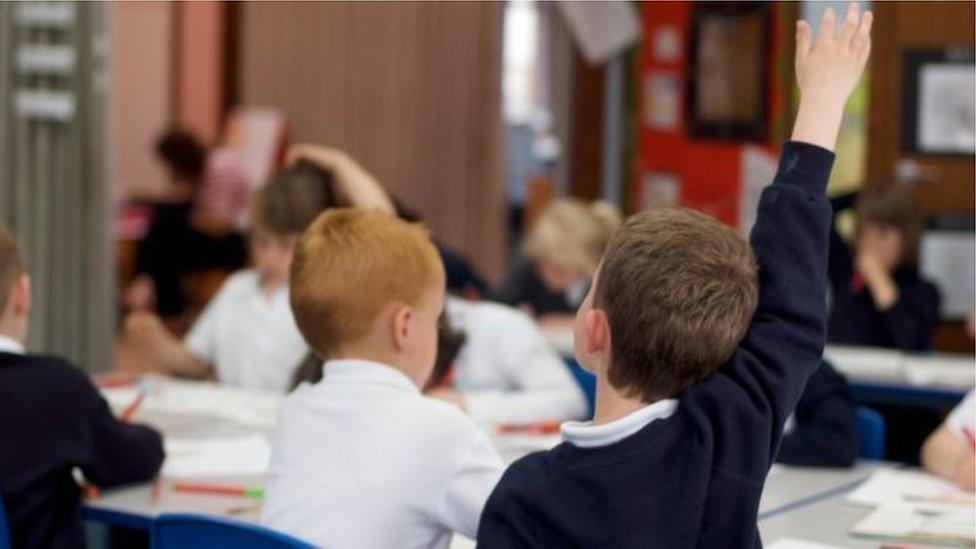
Northern Ireland primary pupils are are only behind students in the east Asian countries Singapore, South Korea, Hong Kong, Taiwan and Japan
Northern Ireland has the highest-achieving primary school pupils in Europe in major international tests in maths.
They are also the sixth best at maths in the world.
They are only behind primary pupils in the East Asian countries Singapore, South Korea, Hong Kong, Taiwan and Japan.
In primary science, however, Northern Ireland ranked above average but in 27th position.
The international rankings - Trends in International Maths and Science Study (TIMSS) - have been published every four years since 1995.
TIMSS latest rankings are based on tests taken in 2015 by more than 580,000 students aged nine to 10 and 13 to 14 in 57 countries.
Northern Irish pupils only participate in the primary school tests, and they were also placed sixth in the world in maths in 2011.
Their global ranking of six puts them ahead of pupils in England in 10th and Ireland in 9th.
It also puts Northern Irish pupils ahead of countries like Finland and Norway which are usually high achievers.

The ranking means that most Northern Irish pupils can:
Solve problems involving whole numbers, simple fractions and two-place decimals
Understand geometric properties of shapes and angles
Interpret and use data in tables and graphs to solve problems

The results also revealed that there was almost no difference between how girls and boys in Northern Ireland performed in either the maths or science tests.
Teachers in Northern Ireland said they spent more than 20% of classroom time teaching maths, and the study suggests Northern Ireland had one of the highest rates of computer use in the subject in the world.
The TIMSS study also suggests that pupil attendance has a significant impact on performance, with better attenders scoring higher in the tests.
Confident
However, global results also suggest that there is no apparent link between class sizes and level of achievement.
Other global findings from the TIMSS study suggest that pupils are more confident in maths and science in primary school than in secondary school, and that most pupils felt safe in school.
The majority of teachers were also found to be satisfied in their jobs.
Although boys and girls also performed almost equally in the science tests, Northern Ireland dropped from 21st in 2011 to 27th in 2015.
That drop in rankings was despite Northern Ireland pupils performing marginally better in the tests than in 2011.
For both primary and secondary levels in maths and science the top places are taken by Asian countries.
The tests are run by the International Association for the Evaluation of Educational Achievement in the Netherlands and Boston College in the USA.
- Published29 November 2016
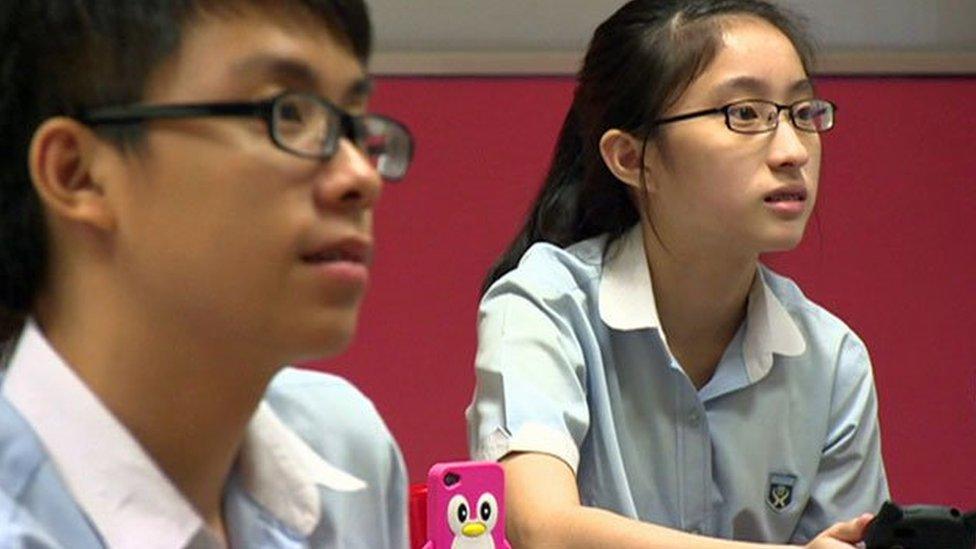
- Published16 November 2016
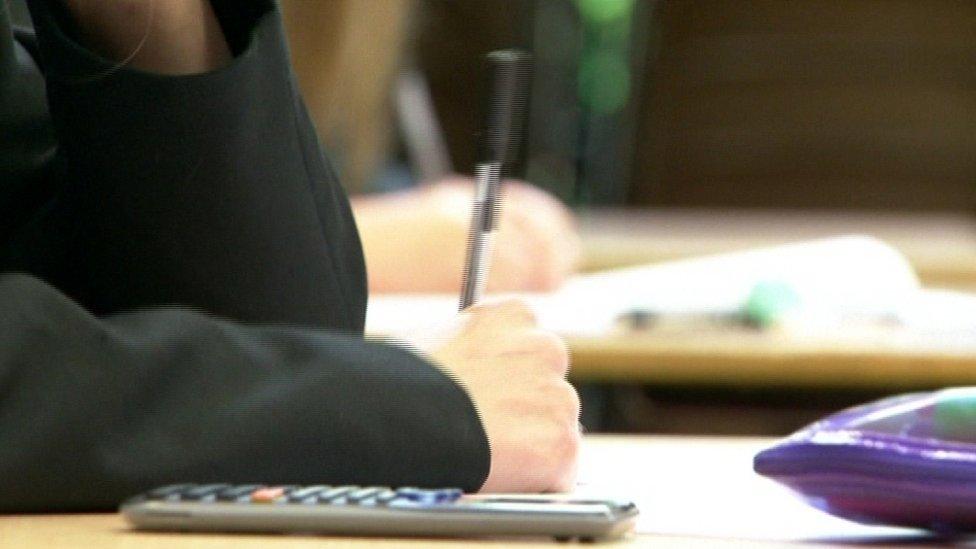
- Published14 October 2016
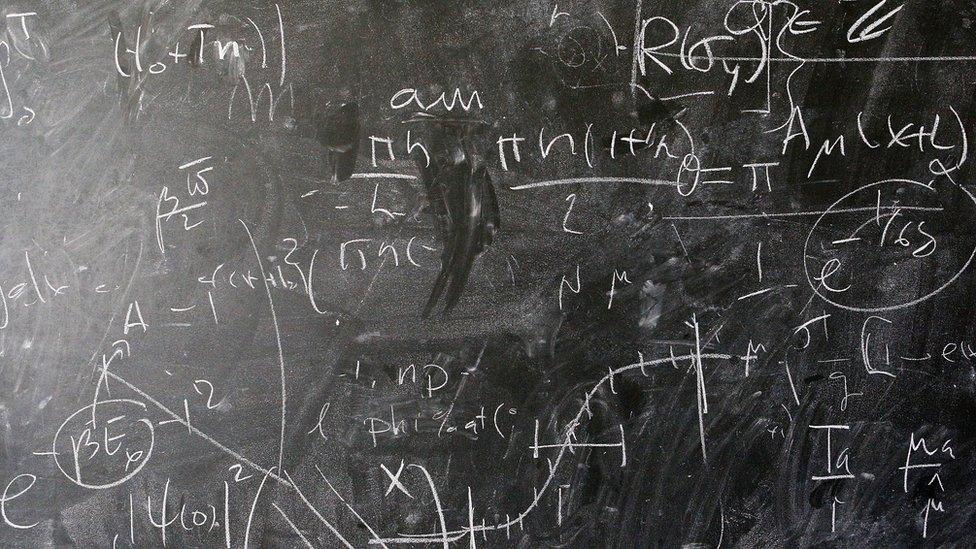
- Published2 September 2015
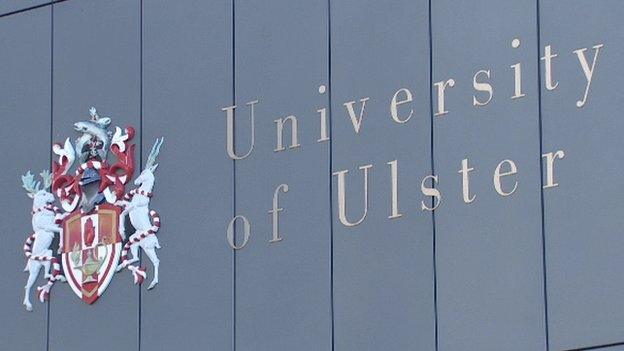
- Published28 July 2016
